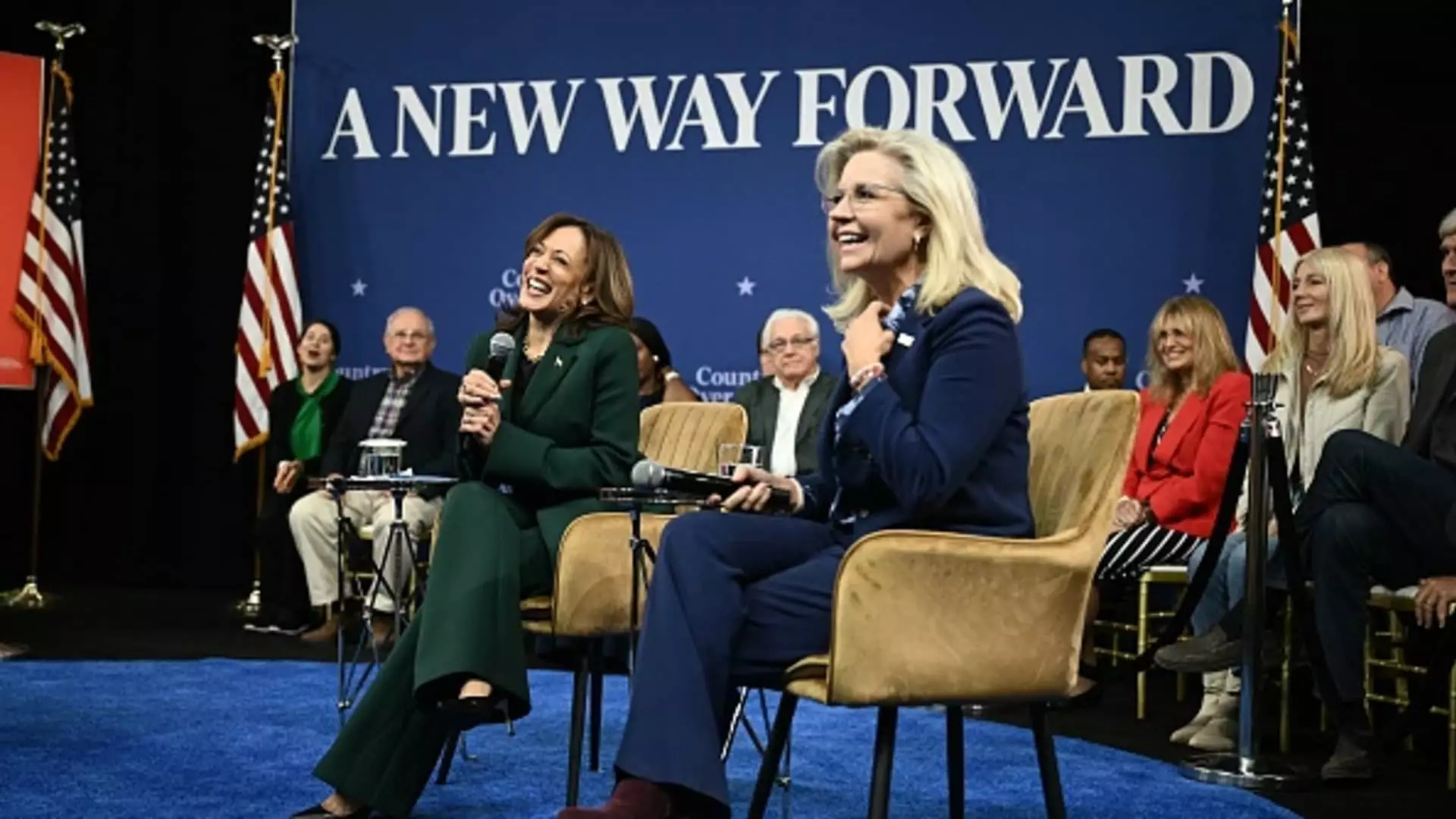In a surprising political alignment, Vice President Kamala Harris and Liz Cheney, a former Republican representative, engaged in a series of thought-provoking dialogues across key battleground states on Monday. This joint effort unfolded in states like Pennsylvania, Michigan, and Wisconsin—areas that embody the essential ‘Blue Wall’ for the upcoming election. Their discussions transcended party lines, focusing instead on core democratic values, accountability, and a shared vision for America’s future.
Cheney’s remarks in Birmingham, Michigan encapsulated the essence of their message: “It’s not about party, it’s about right and wrong.” This resonated deeply within a political landscape where partisanship often overshadows principles. By stressing the importance of individual conscience at the ballot box, Cheney encouraged voters, particularly Republicans, to act in accordance with their values—an assertion that challenges the traditional party loyalty prevalent in American politics.
During their address in Malvern, Pennsylvania, Cheney articulated her rationale for endorsing Vice President Harris, framing it around her conservative principles and her unwavering commitment to the Constitution. She highlighted the critical choice facing voters: align with someone who upholds constitutional values versus a candidate whose actions frequently contradict those same principles. This narrative is pivotal in the current political climate, where many conservative voters are wrestling with the implications of supporting Donald Trump.
Cheney’s pro-life stance, coupled with her critique of increasingly restrictive reproductive healthcare laws, illustrates a broader ideological evolution within conservative circles. “These draconian restrictions on women’s access to reproductive healthcare… are not sustainable,” she stated, acknowledging that the debate around such issues must evolve for the nation’s progress. This perspective not only reflects a shift within the Republican Party but also provides a unique opportunity for dialogue on women’s rights—a topic that has garnered significant attention in recent years.
Harris’s campaign has actively sought out disillusioned Republicans eager for change, culminating in the launch of the “Republicans for Harris” initiative. In an era marked by heightened political polarization, this outreach strategy signifies a critical attempt to foster bipartisanship. Harris reiterated her commitment to inclusivity, emphasizing the necessity of incorporating diverse perspectives, stating, “We need a healthy two-party system… grounded in fact.” This approach underscores her understanding that collaboration across party lines is fundamental for effective governance.
Cheney’s presence alongside Harris serves as a vital “permission structure” for those hesitant to cross traditional party boundaries. Her appeal to patriotic values and a collective obligation to serve the country further cements her role as a bridge-builder in a politically fragmented landscape. Cheney’s call to action, imploring fellow Republicans to do what is right for the nation, adds a layer of moral responsibility that resonates well with voters seeking genuine leadership.
Adding to the significance of their collaboration, Cheney did not shy away from directly confronting the foreign policy implications of a potential Trump presidency. She deemed Trump’s isolationist stance “not Republican” and “dangerous,” warning of the fragility of international alliances if he were to undermine NATO commitments. This concern is amplified by Trump’s historical distrust of NATO, which raises critical questions about America’s standing on the global stage.
The discourse surrounding foreign policy during these discussions highlighted Cheney’s alignment with Harris, especially in foreign support and a robust stance against adversaries. This element of their dialogue is particularly resonant given current international tensions, wherein Cheney’s endorsement of Harris’s approach to supporting Ukraine against Russian aggression positions the vice president as a leader capable of navigating complex global challenges.
In an environment where political loyalty is often prioritized over shared values, the collaboration between Kamala Harris and Liz Cheney signifies a potential shift toward a more inclusive political discourse. Their dialogues invite Republicans and independents disenchanted with mainstream politics to rethink their voting strategies and priorities for the upcoming election.
As the race progresses, the alliance may empower previously reluctant voters to traverse partisan divides and consider the implications of their choices. Cheney’s ability to articulate a conservative vision that aligns with Harris’s more progressive agenda reflects a crucial evolution in American politics—a reminder that, at the heart of democracy, the pursuit of truth and integrity remains paramount.


Leave a Reply